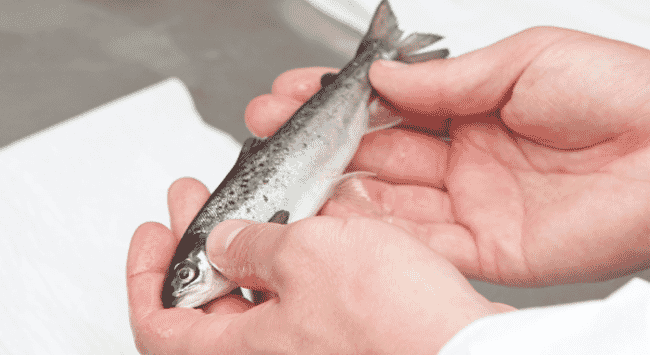The court ruled that both patents protecting the SuperSmolt technology, which is owned by STIM (formerly Europharma), are fully valid.

“We are pleased that the court found in favour of STIM on all the key points of the case. It is a thorough and well worked out decision that explicitly states the innovative value of the original SuperSmolt patent as well as the SuperSmolt FeedOnly patent,” says Jim-Roger Nordly, CEO of the patent holder STIM.
BioMar asked the court to invalidate both patents but found no support for their claim.
“There was a clear need for this invention and finding solutions in this area had been a focus for a long time without such solutions being found,” Oslo District Court stated.
BioMar was found guilty of patent infringement by copying SuperSmolt FeedOnly and selling it under the name Intro Tuning. For this fact Biomar must pay 10 million kroner (£820,000) in damages to STIM.
BioMar’s course of action was examined during the court’s hearing regarding complaints of infringements of the Norwegian Marketing Act, which included accusations of misleading marketing as well as breaches on the business code of conduct. Oslo District Court found the accusations to be valid and ordered BioMar to pay an additional 6.5 million kroner (£534,000) in compensation.
“Not until the product was a success and STIM had built interest in the market, did BioMar obtain a sample of STIM’s feed, in a way that the company have not been willing to explain the details of in court. It has, however, come to light that this sample was analysed by BioMar in order to produce an analogous product, allegedly at the request of customers. Through the examination of evidence, the courts find that this course of action is clearly not accepted in the industry and appear clearly blameworthy,” the court states.
An important element in the ruling is the court’s clarification that the use of smoltification feed also may constitute infringement on the original SuperSmolt patent, which is a process patent.
“The court’s judgment is important for an industry with great need for innovation. STIM is a relatively small company, but we spend large sums every year on research and development. The court’s ruling provides motivation for everyone who puts their money into developing new products and methods that can bring the industry forward. It is a clear signal that it is not acceptable to cheat and copy the innovations of others,” said Nordly.
The precursor to SuperSmolt FeedOnly was originally developed as a result of new discoveries relating to calcium sensing receptors in humans. American scientists understood that stimulating the same receptors in fish may lead to smoltification. Europharma bought the rights to the original SuperSmolt patent in 2008 and developed it further into SuperSmolt FeedOnly that was launched in 2014.
The technology has helped to alleviate issues of mortality and poor growth after sea transfer because of sub-optimal smoltification. According to STIM SuperSmolt FeedOnly allows the fish to smoltify under constant light and without the threat of desmoltification. Its ability to synchronise the smoltification so that every fish has good seawater tolerance at the time of transfer has had a big impact on fish welfare, survival and growth performance.
“SuperSmolt is a true game-changer. It has undoubtedly been instrumental in significantly reducing mortality post-transfer, and the economic benefits for fish farmers are also significant. They now transfer fish groups that perform from day one at sea and reach slaughter size faster,” says Nordly.
